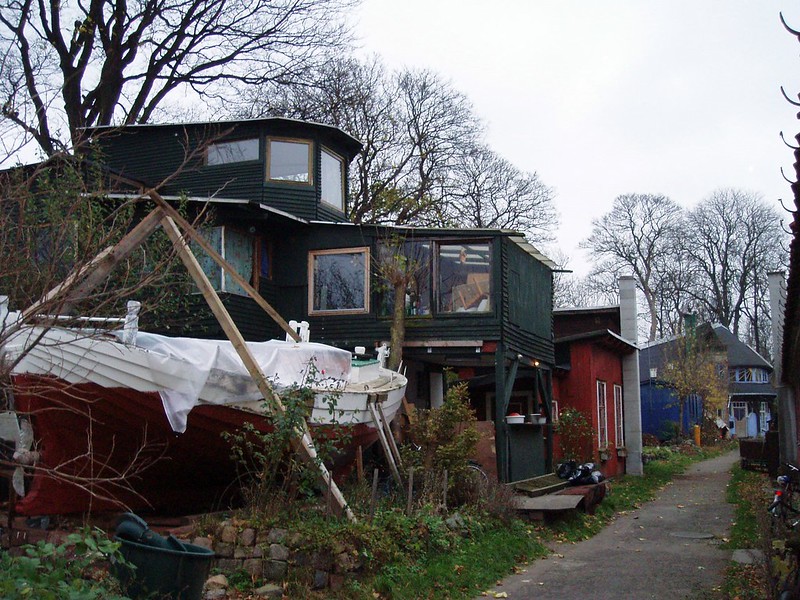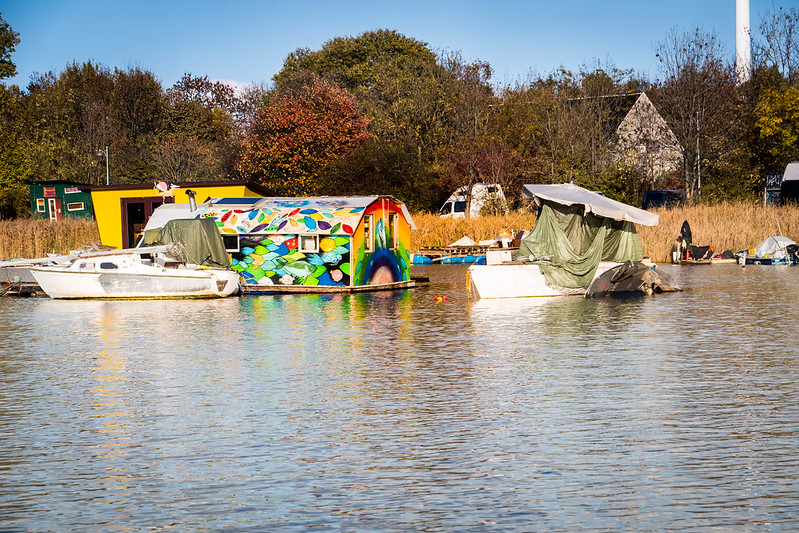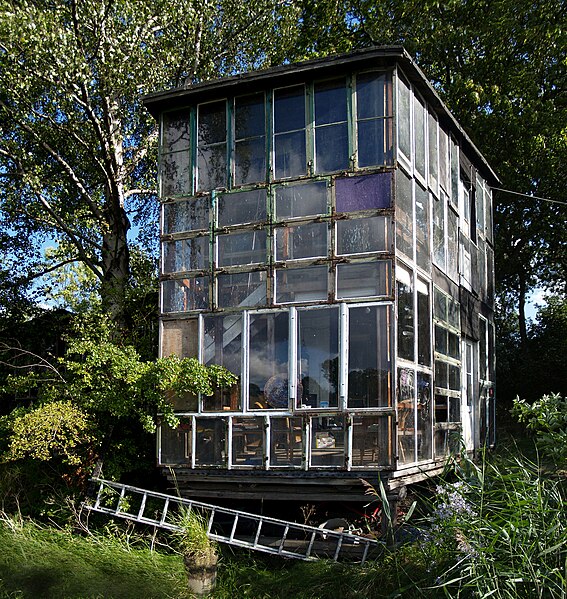Photo by Maria Eklind via Flickr
Located in Copenhagen, Denmark’s capital, Christiania is an intentional community and commune founded by hippies and anarchists in 1971. They declared it a “Freetown” with its own rules, culture and economy, independent from the Danish government. For 50 years, Christiania has been a social experiment, a tourist attraction, and a source of conflict.
Christiania has somewhere around one-thousand residents who live in colorful houses, caravans or converted barracks.


It’s known for its alternative and counter-cultural lifestyle, as well as the open trade of cannabis, which is illegal in Denmark. The main street of Christiania, called Pusher Street, is lined with stalls selling marijuana and hashish. Hard drugs are prohibited, though.
Get Floggled Directly In Your Inbox
Christiania is also a cultural hub, with various bars, restaurants, cafes, workshops, art galleries, music venues and festivals. It’s home to many artists, musicians, craftsmen and activists. Some of the notable cultural events in Christiania include the annual Christmas market, the Opera Festival, the Jazz Festival, and the Distortion Festival.
Many tourists are curious to see the alternative way of living in Christiania, as well as to experience its vibrant and diverse culture. However, some residents are unhappy with the influx of tourists, who they feel are disrespectful and intrusive. They have put up signs saying “No photos” and “No selfies” to discourage visitors from taking pictures.

Christiania was born out of a social rebellion against the authoritarian bureaucracy of Denmark in the 1970s. There was a housing shortage at the time, and a group of people decided to break into an abandoned military base in Christianshavn, which had been left vacant since 1967. They claimed it as their own territory and named it Freetown Christiania.
The squatters began to build their own houses and facilities on the site, using recycled materials and creativity. They also established their own rules and values based on freedom, equality, solidarity, ecology and peace. They rejected the conventional norms of society and experimented with different forms of living together.

The Danish government initially tolerated Christiania as a social experiment but soon faced pressure from the public and the media to evict the squatters. Over the years, there have been many clashes between authorities and residents over issues like taxes, property rights, drug policy, security and sanitation. In 1989, the Danish parliament passed the Christiania Act, which recognized Christiania as a special legal entity but also required it to pay rent and taxes to the state.
In 2004, the Christiania Act was amended to allow the government to sell or demolish some of the buildings in Christiania. The residents protested and filed a lawsuit claiming they had acquired the right to use the land through adverse possession. However, in 2009, the Supreme Court ruled against them and denied their claim.
In 2012, after years of negotiations with the government, the residents of Christiania agreed to buy most of the land they occupied for about $12 million. They formed a foundation called Freetown Christiania Foundation to manage the property and collect rent from the residents. In 2013, the Christiania Act was repealed and Christiania became subject to Danish laws and regulations.




